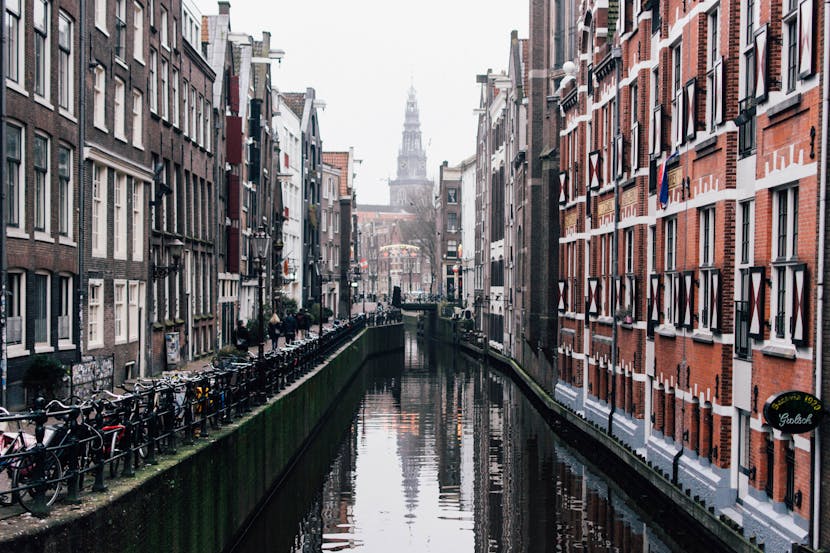Thursday, August 15, 2024
Reading Time: 3 minutes

In response to recent disruptions caused by environmental protests at Cruise Port Amsterdam, the city is developing a comprehensive protocol to manage future incidents effectively. The move follows actions by the environmental activist group Extinction Rebellion, which resulted in significant disruptions to cruise operations over the weekend. As the debate over cruise tourism and its impact on the environment intensifies, Amsterdam is taking steps to ensure both the safety of travelers and the smooth operation of its port.
Recent Disruptions and Their Impact
The recent protests had a direct impact on the operations of major cruise lines. On Saturday, Royal Caribbean International’s Jewel of the Seas was forced to divert to IJmuiden instead of docking at Amsterdam due to blockades set up by Extinction Rebellion. The following day, Regent Seven Seas Cruises’ Seven Seas Mariner faced delays for the same reasons. These actions disrupted the travel plans of hundreds of passengers and raised concerns about the potential for future incidents.
The protests were centered on the lock that leads to Amsterdam, a critical infrastructure owned by the Ministry of Public Works and Water Management and operated by the Amsterdam Port Authority. Extinction Rebellion’s actions aimed to draw attention to the perceived negative impacts of cruise tourism, particularly concerns about environmental degradation and the phenomenon of overtourism.
Developing a Response Protocol
In light of these events, Dick de Graaff, Managing Director of Cruise Port Amsterdam, acknowledged the growing trend of protests against cruise tourism, noting that similar actions have been observed in other ports. He emphasized that these protests are often driven by perceptions rather than concrete data on the environmental impact of cruising.
“What happened here could happen anywhere,” de Graaff stated, underscoring the importance of being prepared for such disruptions. He revealed that a protocol is currently being formulated by the Public Prosecution Office, the mayor of Velsen, and the police. This protocol aims to establish clear guidelines on how to manage and mitigate the effects of future protests, ensuring minimal disruption to cruise operations while addressing the concerns raised by activists.
Industry Response and Commitment to Sustainability
The cruise industry has responded to these protests by reiterating its commitment to sustainable and responsible operations. A spokesperson from the Cruise Lines International Association (CLIA) highlighted the significant investments being made by the industry in environmental technologies and practices. These investments are aimed at reducing the environmental footprint of cruise ships and enhancing the sustainability of cruise operations.
“Already today, cruise lines are building and introducing the ships of the future which will run on new, more sustainable engine technologies,” the CLIA spokesperson stated. This commitment is part of a broader industry effort to address the concerns associated with cruise tourism, particularly in relation to emissions and the impact on local environments.
However, the spokesperson also expressed concerns about the methods used by protest groups like Extinction Rebellion. “While we respect the right of people to hold and express different views, we take exception when the expression of those views ignores facts, impedes on the rights of others, or, worse, creates safety and security concerns,” they added.
The cruise industry advocates for a collaborative approach to achieving sustainability goals, emphasizing that cooperation between stakeholders is more productive than disruptive protests. The industry is open to engaging in dialogue with environmental groups and other stakeholders to find common ground and develop solutions that benefit both the environment and the travel industry.
The Broader Debate on Cruise Tourism and Travel Market
The recent protests in Amsterdam are part of a broader global debate on the impact of cruise tourism. In various parts of the world, particularly in popular tourist destinations, there is growing concern about the environmental and social consequences of large numbers of tourists arriving by cruise ship. Critics argue that the influx of visitors can overwhelm local infrastructure, contribute to pollution, and degrade natural and cultural sites.
In response, some cities and countries are implementing measures to manage the impact of cruise tourism, such as limiting the number of cruise ships that can dock at a port each day or imposing stricter environmental regulations on cruise operators.
Looking Ahead
As Amsterdam prepares for the possibility of future protests, the development of a robust protocol is seen as a crucial step in maintaining the balance between supporting the tourism industry and addressing legitimate environmental concerns. The city’s actions could serve as a model for other ports facing similar challenges, as the global debate over the impact of cruise tourism continues to evolve.
For now, the focus is on ensuring that both the needs of the travel industry and the concerns of environmental activists are addressed in a manner that promotes safety, sustainability, and mutual respect.
Source: Cruise industry News
Tags: Amsterdam, cruise industry news, cruise lines, Cruise Lines International Association (CLIA), Cruise Travel News, Extinction Rebellion cruise tourism, Netherlands Travel News, overtourism, Regent Seven Seas Mariner delay, Royal Caribbean international, Royal Caribbean Jewel of the Seas disruption



